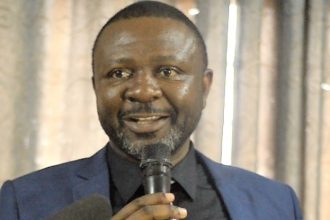The Covid-19 pandemic’s significant impact on government revenues could push this year’s budget deficit to as much as 10 percent of GDP, if no drastic efforts are taken to rein in some expenditure items, Dr. Theo Acheampong, an economist, has said.
Dr. Acheampong said the country is on course to record a deficit of between 8-10 percent of GDP.
According to the Ministry of Finance, the revenue losses occasioned by the virus and other hurriedly assembled initiatives to fight the pandemic could set the government back by about GH¢21bn.
Already, official data for the first quarter of the year shows that government’s revenue for the period was more than GH¢3.6bn off-target—an indicator that government’s deepest fears may not be far from reality.
Speaking on a webinar hosted by policy think tank IMANI on the topic, “Opportunities and Challenges of Public Financial Management Systems to Respond to COVID-19 in Africa”, Dr. Acheampong stated that expenditure rationalisation holds the key to closing the widening budget deficit gap.
“What COVID-19 has done with the loss of the revenue is that it has created a much bigger funding gap and we have to resort to few other sources to plug that gap. Even with the gap that existed [pre-COVID-19], we could still have pursued a few of these rationalisation initiatives to more or less reduce how big this gap would be.
“Some of these savings could actually then mean we probably would run under 6 percent to 6.5 percent deficit, which is probably 1.5 percent lower than the deficit estimates now that we are expecting a between 8 to 10 percent budget deficit,” he said.
While the Fiscal Responsibility Act caps government’s budget deficit for a fiscal year at 5 percent of GDP, given the massive scale of the pandemic’s shock, Finance Minister Ken Ofori-Atta has already said that the ceiling would have to be set aside for at least this year.
According to Dr. Acheampong, despite the act making provision for the cap to be aside in times like this, the legislation fails to indicate how the country would navigate its way out of the wider-than-expected deficit.
“In the law, there is a bit of room to trigger some of these emergency provisions, but there is no additional detail on how you actually go about doing this and how far you can go to spend your way out of the crisis,” he added.
Rationalisation
Dr. Acheampong argued that initiatives like the Nation Builders Corps (NABCO), which provides stopgap employment to about 100,000 graduates, need to be reassessed in order to create more value as well as make more savings to create more fiscal room.
“A programme like NABCO can and should be reviewed because it has been implemented for a number of months now, especially in a situation where you are facing significant budget gaps,” he said.
He mentioned that other costly initiatives like the Free Senior High School, however, may be difficult to rationalise regardless of the dwindling revenues, as the policy remains one of the flagship government programmes.
















